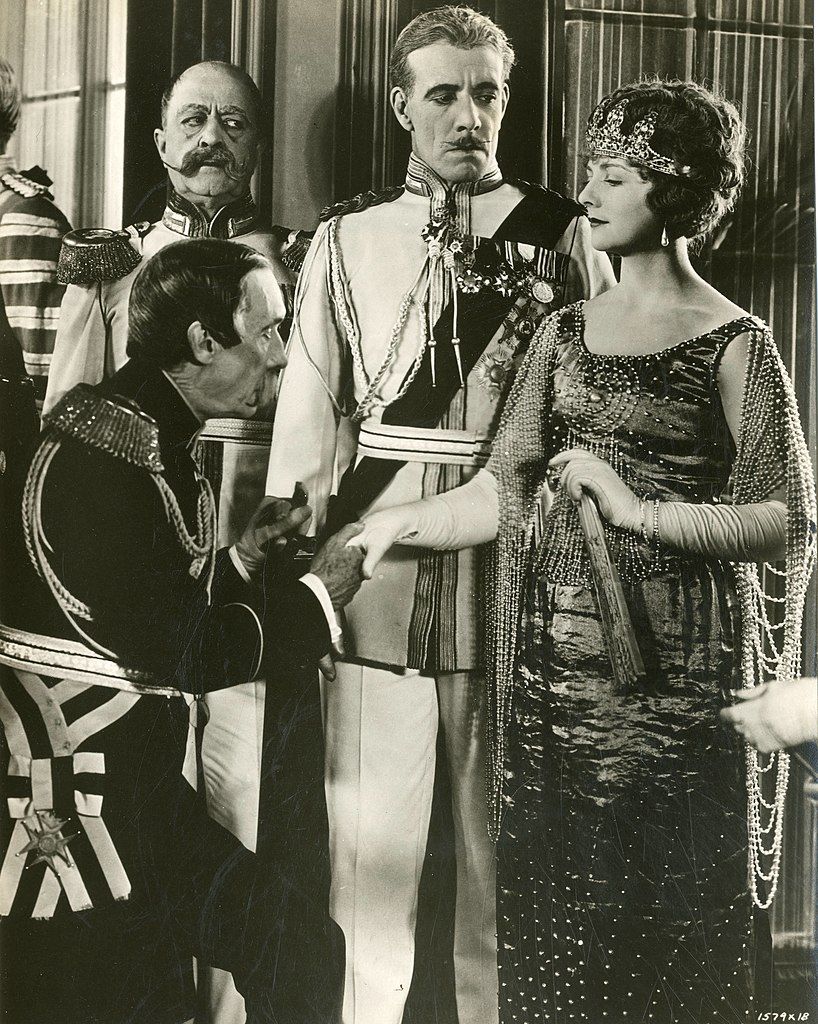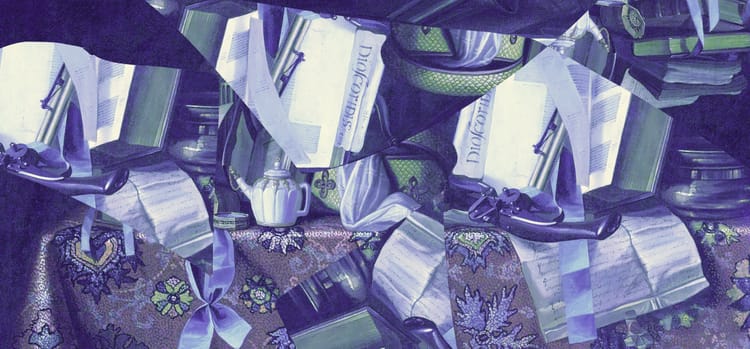Every Laugh In Anthony Hope's The Prisoner of Zenda


As a genre, the swashbuckler is particularly interested in laughter. It's an especially useful gesture (I don't know if you could more properly call laughter a gesture or a vocalization) during action sequences; you can't always make defiant speeches when you're racing on horseback or fencing furiously. And since the genre is especially interested in power, inheritance, and legitimacy, laughter is doubly useful.
There's the virtuous and heroic kind, that denotes a devil-may-care sensibility, a healthy love of pleasure, a light, charming sexism that women adore, and a carelessness towards obligation that serves as a pleasant contrast to an underlying and unshakeable attachment to duty, as in The Prisoner of Zenda's Rudolf Rassendyll. Laughter keeps ambition in check, denotes good health, and confirms heterosexuality. He laughs during meals, he laughs at the animation of pretty women, he laughs as a good sport does when he comes out the loser, and he laughs at danger:
"I laughed, and went on with my egg."
"I threw myself back in my deep armchair, and laughed at her zeal...And she laughed mischievously as she cast a glance at me, and tossed her head at her sister's reproving face."
"'If a man will be a younger son, why he must take what the elder leaves, and be as thankful to God as he can;' and, thinking of myself, I shrugged my shoulders and laughed."
"At that moment I believed – I almost believed – that I was in very truth the king; and, with a look of laughing triumph, raised my eyes to the beauty-laden balconies again...and then I started."
"If he's red, he's right!" whereat I laughed and took off my helmet that she might see that my hair was of the right colour, and they cheered me again at that."
"Antoinette de Mauban shrieked, but I rose to my feet, laughing aloud."
"I raised my revolver and took a snap shot; I heard him curse, and then I ran like a hare, laughing as I went, past the summer-house and along by the wall."
"He started and cried: 'You’re safe!' and wrung my hand. But a moment later he added: 'And what the devil are you laughing at?'
'Four gentlemen round a tea-table,' said I, laughing still, for it had been uncommonly ludicrous to see the formidable three altogether routed and scattered with no more deadly weapon than an ordinary tea-table."
"And I burst out laughing, for I knew what medicine Detchard longed for—it is called Revenge."
The king of Ruritania laughs like the Ghost of Christmas Present or Tom Bombadil laughs; in late Victorian fiction, the laughter of kings is practically the same thing as their right to rule. The most powerful have the greatest reason to laugh. Tra-la!
"Well met, cousin!" he cried, stepping up to me, clapping me on the back, and laughing still.
"Fritz, Fritz!" he cried, "a thousand crowns for a sight of brother Michael's face when he sees a pair of us!" and the merry laugh rang out again.
"I drank its fellow to the 'Elphberg Red,' whereat he laughed loudly."
Later his laughter is infected; he is injured, like the Fisher King, but his wound lies in his merriment, not in his thigh:
"The king stood in the corner of the room: broken by his sickness, he could do nothing; his fettered hands moved uselessly up and down, and he was laughing horribly in half-mad delirium."
The world laughs, usually as a counterbalance to self-seriousness, one of the worst sins anyone can commit in a swashbuckler.
"Heredity laughs at discretion."
He paused and added, with a laugh: "Royal attentions are hard to resist – you know that, don't you, Rudolf?"
Girls laugh to signal plausibly-deniable romantic availability:
The merry girl began to laugh as she called: "See, Johann, it is the colour you love!"
Grim old men laugh scornfully or grimly, both to show how dangerous things are becoming and how little they care for danger.
"Ill!" echoed Sapt, with a scornful laugh.
"Then I burst out laughing, and even old Sapt grimly smiled."
And of course, villains laugh – because the villain in a swashbuckler must be likeable, must be at least half as charming as he is contemptible, and as a bonus at least one of them ought to be so recklessly beautiful the author feels the need to throw in all the light sexism and conspicuous flirtations with merry wenches to counterbalance it:
"On what mischief was the young fiend bent now? Then he laughed low to himself; then he turned his face to the wall, took a step in my direction, and, to my surprise, began to climb down the wall."
"He leapt on the parapet of the window, laughing as he leapt, and waving his sword in his hand. He was drunk with blood, and he laughed again wildly as he flung himself headlong into the moat."
"What was the sound? Again a strange one for the place and the time. An easy, scornful, merry laugh—the laugh of young Rupert Hentzau! I could scarcely believe that a sane man would laugh. Yet the laugh told me that my men had not come; for they must have shot Rupert ere now, if they had come. And the clock struck half-past two! My God!"
“Dead!” shouted Rupert. “I struck better than I knew!” and he laughed triumphantly.
"Master Rupert lifted her down amid her shrieks—the sight of him frightened her; but he treated her gently, laughed, kissed her, and gave her money. Then he jumped on the horse, sitting sideways like a woman; and then he waited for me. I, on my part, waited for him."
[Image via Wikimedia Commons]




Comments ()